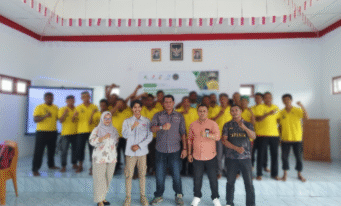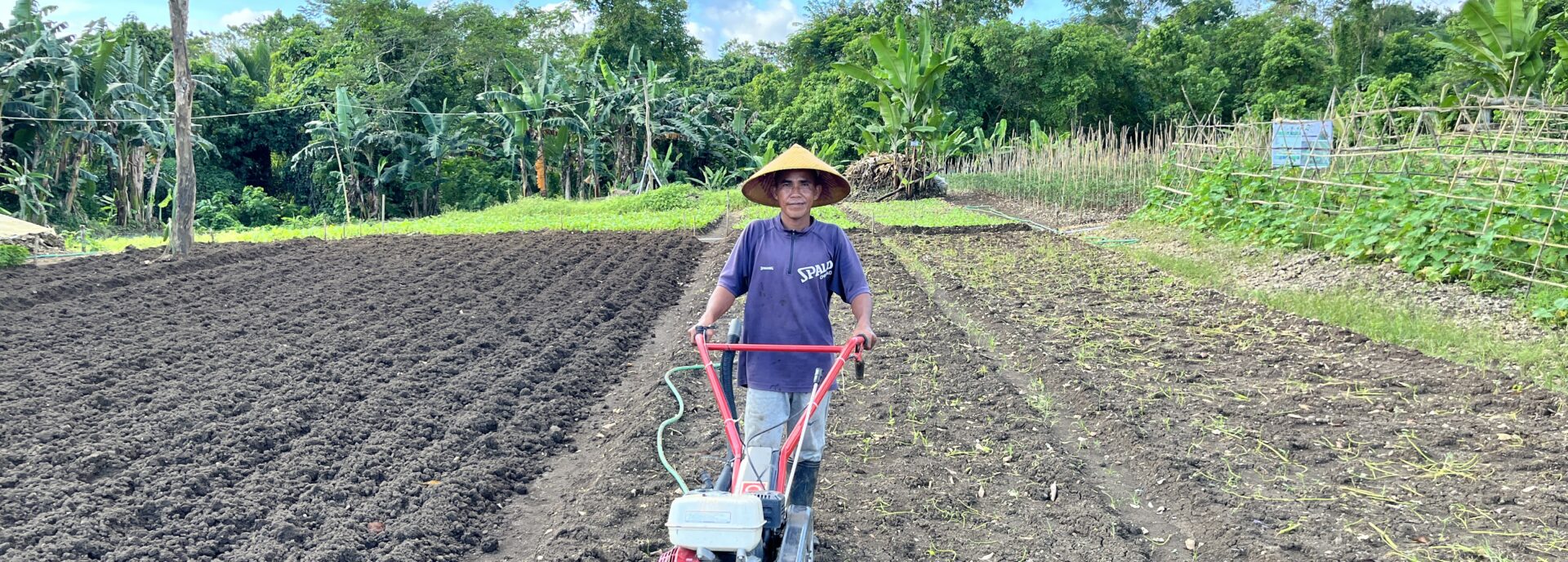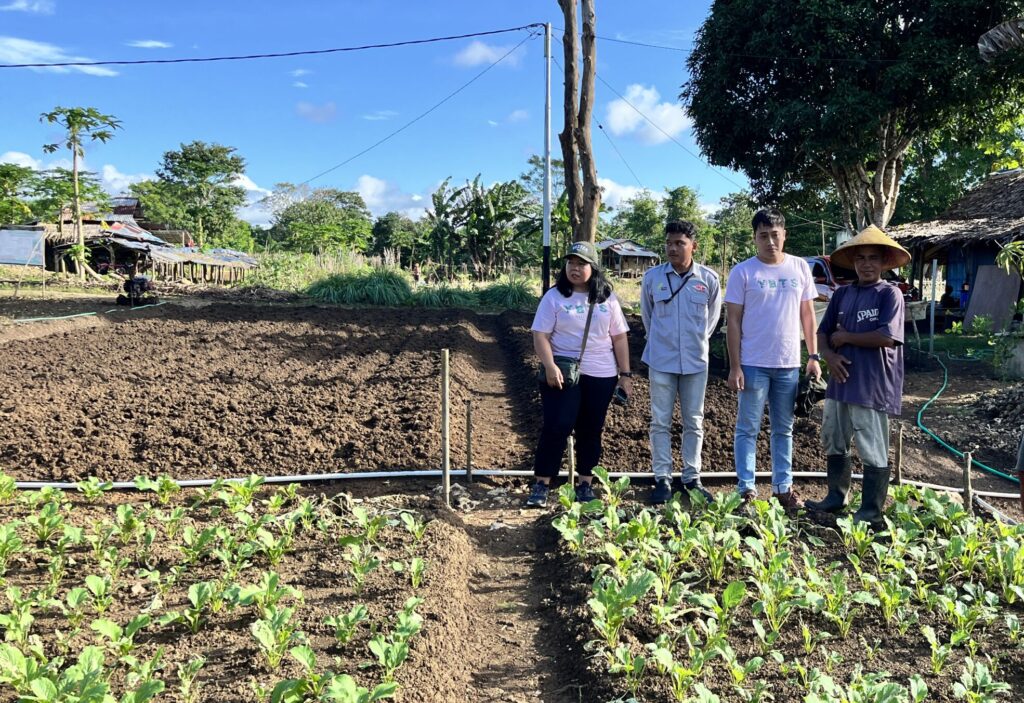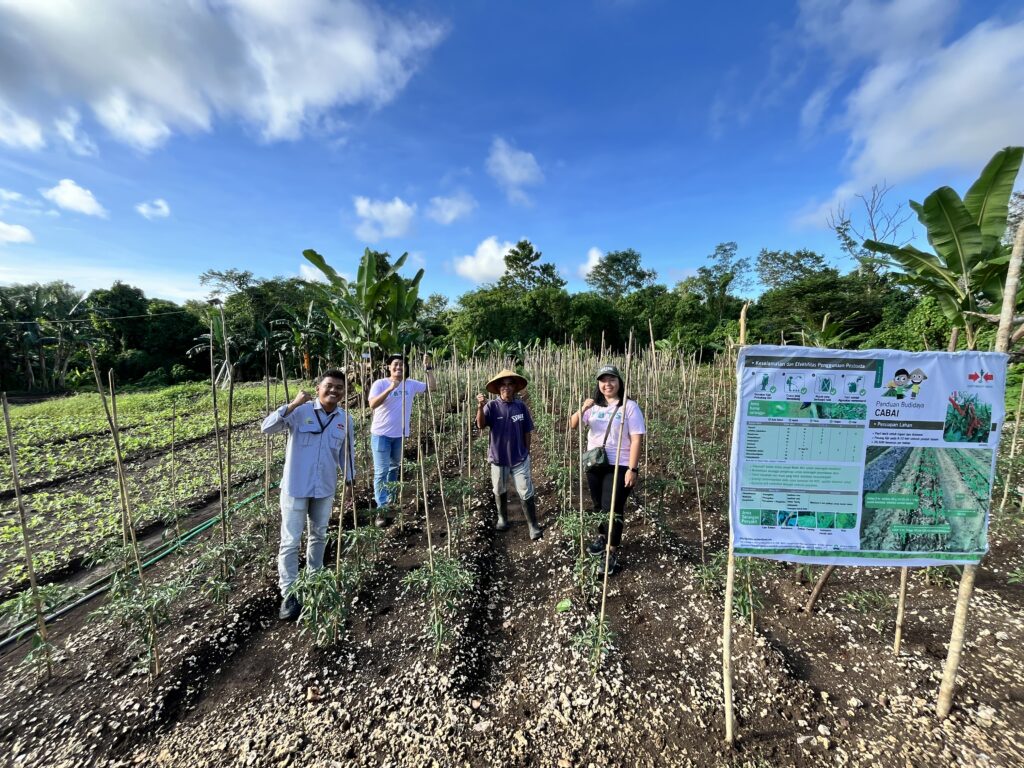

Over the past month, the weather in Southeast Maluku has become increasingly unpredictable. Heavy rain may fall in the morning, only to be followed by scorching heat in the afternoon. For farmers, this is more than a minor inconvenience; it’s a real challenge to keep their crops growing strong and healthy.
Pak Baharudin, a farmer from a long line of agricultural families in Ambon, feels this firsthand on the land he cultivates. He is currently growing a Tangguh variety of chili on soil that is not only dry but also filled with coral rocks. Despite this, the tough terrain and erratic climate have not shaken his spirit.
“Before, we could roughly predict the weather by reading the wind patterns. Now, it’s often completely off,” he said. “Crops can wither, suffer root rot, or just stop growing altogether due to unstable weather.”
Every day, Pak Baharudin shows up in his field with the same determination, even when the conditions are far from ideal. He knows well that farming on rocky ground is not easy. Just forming planting beds requires extra time and energy. Yet, behind every bed he builds is a firm belief that good results come from consistent effort.
However, determination alone is not enough. In recent years, Pak Baharudin realized that the traditional methods passed down by his parents no longer fully address the current challenges in farming. That’s where YBTS came in and made a difference.
Although he was deeply rooted in traditional farming practices, Pak Baharudin understood the need to evolve. He is grateful to have joined the farmer training by YBTS’ Technical Field Officer (TFO). Through the training, he was introduced to Good Agricultural Practices (GAP) and began learning how to farm more efficiently and sustainably.

“I’ve learned a lot from YBTS. Now, I understand why proper planting methods matter. It’s not just about putting seeds in the ground,” he said.
Today, Pak Baharudin adjusts his planting schedule, selects crop varieties based on the season, and uses fertilizers and pesticides more carefully. He also keeps an eye on the market, because harvest in Tual must compete with yields from Ambon and surrounding islands.
“If we don’t adapt to the market, we will lose. Now, planting must be planned, it can’t just follow habits,” he explained.
Previously, Pak Baharudin successfully harvested corn from a 500 sqm plot. The results were not only good in quantity, but also profitable. His regular traders even came directly to his field to purchase. That success became a strong motivator for him to keep growing vegetables.
Now equipped with better knowledge and a more strategic approach, Pak Baharudin is no longer just surviving; he is evolving. He combines lived experience with new agricultural insights, preserving tradition while embracing innovation.
In the face of unpredictable weather, challenging soil conditions, and shifting market demands, Pak Baharudin continues to grow. It is not just chili or corn that he sows, but also the hope to grow, adapt, and thrive.
